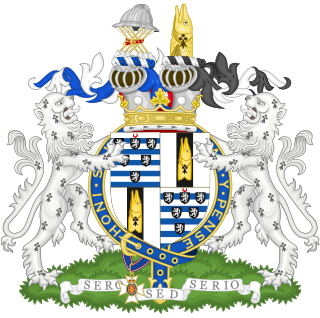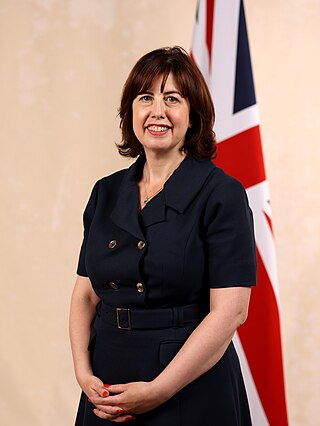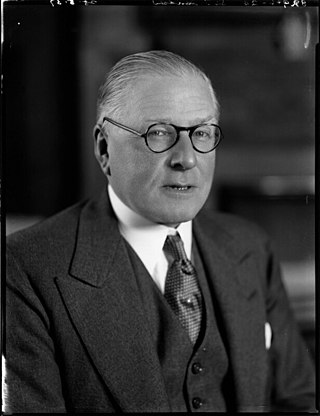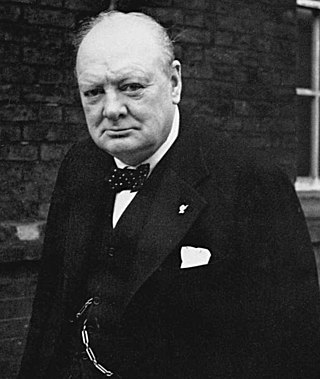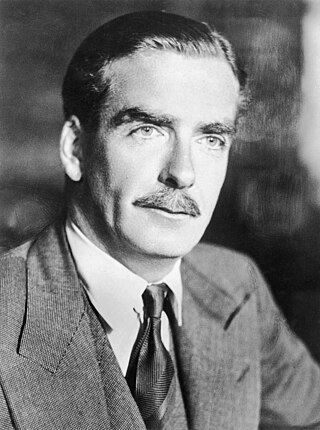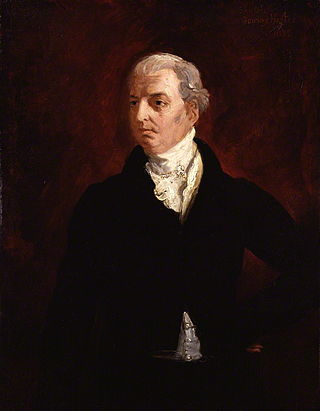| Portrait | Name
(Birth–Death) | Term of office | Concurrent office(s) | Party | Prime Minister |
|---|
|  | Thomas Pelham
Baron Pelham
(1756–1826) | 11 November
1803 | 6 June
1804 | — | Whig | | Henry Addington |
|---|
|  | Henry Phipps
3rd Baron Mulgrave
(1744–1792) | 6 June
1804 | 14 January
1805 | — | Tory | | William Pitt the Younger |
|---|
|  | Robert Hobart
4th Earl of Buckinghamshire
(1760–1816) | 14 January
1805 | 10 July
1805 | — | Tory |
|---|
|  | Dudley Ryder
2nd Baron Harrowby
(1762–1847) | 10 July
1805 | 12 February
1806 | — | Tory |
|---|
|  | Edward Smith-Stanley
12th Earl of Derby
(1752–1834) | 12 February
1806 | 30 March
1807 | — | Whig | | William Grenville
(Ministry of All the Talents) |
|---|
|  | Spencer Perceval
MP for Northampton
(1762–1812) | 30 March
1807 | 11 May
1812 | Chancellor of the Exchequer Leader of the House of Commons | Tory | | William Cavendish-Bentinck,3rd Duke of Portland |
|---|
Prime Minister
Chancellor of the Exchequer
Leader of the House of Commons
(from October 1809) | | Himself |
|---|
|  | Robert Hobart
4th Earl of Buckinghamshire
(1760–1816) | 23 May
1812 | 23 June
1812 | President of the Board of Control | Tory | | Robert Jenkinson,2nd Earl of Liverpool |
|---|
|  | Charles Bathurst
MP for Harwich
(1754–1831) [Note 14] | 23 June
1812 | 13 February
1823 | President of the Board of Control (January 1821 – February 1822) | — |
|  | Nicholas Vansittart
1st Baron Bexley
(1766–1851) | 13 February
1823 | 26 January
1828 | | Tory |
|---|
| George Canning
(April–August 1827) |
|---|
| F. J. Robinson,1st Viscount Goderich |
|---|
|  | George Hamilton-Gordon
4th Earl of Aberdeen
(1784–1860) | 26 January
1828 | 2 June
1828 | — | Tory | | Arthur Wellesley,1st Duke of Wellington |
|---|
|  | Charles Arbuthnot
MP for St Ives
(1767–1850) | 2 June
1828 | 25 November
1830 | — | Tory |
|---|
|  | Henry Vassall-Fox
3rd Baron Holland
(1773–1840) | 25 November
1830 | 14 November
1834 | | Whig | | Charles Grey |
|---|
| William Lamb,2nd Viscount Melbourne |
|---|
| vacant | 14 November
1834 | 26 December
1834 | | | Arthur Wellesley,1st Duke of Wellington
(Caretaker) |
|---|
|  | Charles Williams-Wynn
MP for Montgomeryshire
(1775–1850) | 26 December
1834 | 8 April
1835 | — | Conservative | | Robert Peel |
|---|
|  | Henry Vassall-Fox
3rd Baron Holland
(1773–1840) | 23 April
1835 | 31 October
1840 | — | Whig | | William Lamb,2nd Viscount Melbourne |
|---|
|  | George Villiers
4th Earl of Clarendon
(1800–1870) | 31 October
1840 | 23 June
1841 | Lord Privy Seal | Whig |
|---|
|  | Sir George Grey
MP for Devonport
(1799–1882) | 23 June
1841 | 30 August
1841 | — | Whig |
|---|
|  | Lord Granville Somerset
MP for Monmouthshire
(1792–1848) | 3 September
1841 | 27 June
1846 | — | Conservative | | Robert Peel |
|---|
|  | John Campbell
1st Baron Campbell
(1779–1861) | 6 July
1846 | 6 March
1850 | — | Whig | | John Russell |
|---|
|  | George Howard
7th Earl of Carlisle
(1802–1864) | 6 March
1850 | 21 February
1852 | First Commissioner of Woods and Forests (until July 1850) | Whig |
|---|
|  | Robert Christopher
MP for North Lincolnshire
(1804–1887) | 1 March
1852 | 17 December
1852 | — | Conservative | | Edward Smith-Stanley,14th Earl of Derby |
|---|
|  | Edward Strutt
MP for Nottingham
(1801–1880) | 3 January
1853 | 21 June
1854 | — | Whig / Radical | | George Hamilton-Gordon,4th Earl of Aberdeen
(Coalition) |
|---|
|  | Granville Leveson-Gower
2nd Earl Granville
(1815–1891) | 21 June
1854 | 30 January
1855 | — | Whig |
|---|
| vacant | February
1855 | March
1855 | |
|  | Dudley Ryder
2nd Earl of Harrowby
(1798–1882) | 31 March
1855 | 7 December
1855 | — | — | | Henry John Temple,3rd Viscount Palmerston |
|---|
|  | Matthew Talbot Baines
MP for Leeds
(1799–1860) | 7 December
1855 | 21 February
1858 | — | Whig |
|---|
|  | James Graham
4th Duke of Montrose
(1799–1874) | 26 February
1858 | 11 June
1859 | — | Conservative | | Edward Smith-Stanley,14th Earl of Derby |
|---|
|  | Sir George Grey
MP for Morpeth
(1799–1882) | 22 June
1859 | 25 July
1861 | — | Whig / Liberal | | Henry John Temple,3rd Viscount Palmerston |
|---|
|  | Edward Cardwell
MP for Oxford
(1813–1886) | 25 July
1861 | 7 April
1864 | — | Liberal |
|---|
|  | George Villiers
4th Earl of Clarendon
(1800–1870) | 7 April
1864 | 3 November
1865 | — | Liberal |
|---|
| vacant | 3 November
1865 | 26 January
1866 | | | John Russell |
|---|
|  | George Goschen
MP for City of London
(1831–1907) | 26 January
1866 | 26 June
1866 | Vice-President of the Board of Trade (until March 1866) | Liberal |
|---|
|  | William Courtenay
11th Earl of Devon
(1807–1888) | 10 July
1866 | 26 June
1867 | President of the Poor Law Board (from May 1867) | Conservative | | Edward Smith-Stanley,14th Earl of Derby |
|---|
|  | John Wilson-Patten
MP for North Lancashire
(1802–1892) | 26 June
1867 | 7 November
1868 | — | Conservative |
|---|
| Chief Secretary for Ireland (from September 1868) | | Benjamin Disraeli
(from February 1868) |
|---|
|  | Thomas Edward Taylor
MP for County Dublin
(1811–1883) | 7 November
1868 | 1 December
1868 | — | Conservative |
|---|
|  | Frederick Hamilton-Temple-Blackwood
1st Earl of Dufferin
(1826–1902) [Note 15] | 12 December
1868 | 9 August
1872 | Paymaster General | Liberal | | William Ewart Gladstone |
|---|
|  | Hugh Childers
MP for Pontefract
(1827–1896) | 9 August
1872 | 30 September
1873 | Liberal |
|---|
|  | John Bright
MP for Birmingham
(1811–1889) | 30 September
1873 | 17 February
1874 | — | Liberal |
|---|
|  | Thomas Edward Taylor
MP for County Dublin
(1811–1883) | 2 March
1874 | 21 April
1880 | — | Conservative | | Benjamin Disraeli
(Earl of Beaconsfield from 1876) |
|---|
|  | John Bright
MP for Birmingham
(1811–1889) | 28 April
1880 | 25 July
1882 | — | Liberal | | William Ewart Gladstone |
|---|
|  | John Wodehouse
1st Earl of Kimberley
(1826–1902) | 25 July
1882 | 28 December
1882 | Colonial Secretary | Liberal |
|---|
|  | John George Dodson
MP for Scarborough
(1825–1897) | 28 December
1882 | 29 October
1884 | — | Liberal |
|---|
|  | George Trevelyan
MP for Hawick Burghs
(1838–1928) | 29 October
1884 | 9 June
1885 | — | Liberal |
|---|
|  | Henry Chaplin
MP for Sleaford
(1840–1923) | 24 June
1885 | 28 January
1886 | — | Conservative | | Robert Gascoyne-Cecil,3rd Marquess of Salisbury |
|---|
|  | Edward Heneage
MP for Great Grimsby
(1840–1922) | 6 February
1886 | 16 April
1886 | — | Liberal | | William Ewart Gladstone |
|---|
|  | Sir Ughtred Kay-Shuttleworth
MP for Clitheroe
(1844–1939) | 16 April
1886 | 20 July
1886 | — | Liberal |
|---|
|  | Gathorne Gathorne-Hardy
1st Viscount Cranbrook
(1814–1906) | 3 August
1886 | 16 August
1886 | Lord President of the Council | Conservative | | Robert Gascoyne-Cecil,3rd Marquess of Salisbury |
|---|
|  | John Manners
7th Duke of Rutland
(1818–1906) [Note 16] | 16 August
1886 | 11 August
1892 | — | Conservative |
|---|
|  | James Bryce
MP for Aberdeen South
(1838–1922) | 18 August
1892 | 28 May
1894 | | Liberal | | William Ewart Gladstone
(until March 1894) |
|---|
| Archibald Primrose,5th Earl of Rosebery |
|---|
|  | Edward Marjoribanks
2nd Baron Tweedmouth
(1849–1909) | 28 May
1894 | 21 June
1895 | Lord Privy Seal | Liberal |
|---|
|  | R. A. Cross
1st Viscount Cross
(1823–1914) | 29 June
1895 | 4 July
1895 | Conservative | | Robert Gascoyne-Cecil,3rd Marquess of Salisbury |
|---|
|  | Henry James
1st Baron James of Hereford
(1828–1911) | 4 July
1895 | 11 August
1902 | | Liberal Unionist |
|---|
| Arthur Balfour
(from 12 July 1902) |
|---|
|  | Sir William Hood Walrond
Bt PC
MP for Tiverton
(1849–1925) | 11 August
1902 | 4 December
1905 | — | Conservative | | Arthur Balfour
Coalition |
|---|
|  | Sir Henry Fowler
GCSI
MP for Wolverhampton East
(1830–1911) | 10 December
1905 | 13 October
1908 | | Liberal | | Henry Campbell-Bannerman |
|---|
| H. H. Asquith |
|---|
|  | Edmond Fitzmaurice
1st Baron Fitzmaurice
(1846–1935) | 13 October
1908 | 25 June
1909 | — |
|---|
|  | Herbert Samuel
MP for Cleveland
(1870–1963) | 25 June
1909 | 14 February
1910 | — |
|---|
|  | Jack Pease
MP for Rotherham
(1860–1943) | 14 February
1910 | 23 October
1911 | — |
|---|
|  | Charles Hobhouse
TD
MP for Bristol East
(1862–1941) | 23 October
1911 | 11 February
1914 | — |
|---|
|  | Charles Masterman
(1873–1927) [Note 17] | 11 February
1914 | 3 February
1915 | — |
|---|
|  | Edwin Samuel Montagu
MP for Chesterton
(1879–1924) | 3 February
1915 | 25 May
1915 | — |
|---|
|  | Winston Churchill
MP for Dundee
(1874–1965) | 25 May
1915 | 25 November
1915 | — | | H. H. Asquith
(War coalition) |
|---|
|  | Herbert Samuel
MP for Cleveland
(1870–1963) | 25 November
1915 | 11 January
1916 | Postmaster-General |
|---|
|  | Edwin Samuel Montagu
MP for Chesterton
(1879–1924) | 11 January
1916 | 9 July
1916 | — |
|---|
|  | Thomas McKinnon Wood
MP for Glasgow St Rollox
(1855–1927) | 9 July
1916 | 10 December
1916 | Financial Secretary to the Treasury |
|---|
|  | Frederick Cawley
MP for Prestwich
(1850–1937) | 10 December
1916 | 10 February
1918 | — | | David Lloyd George
(Coalition) |
|---|
|  | Max Aitken
1st Baron Beaverbrook
(1879–1964) | 10 February
1918 | 4 November
1918 | Minister of Information | Conservative |
|---|
|  | William Hayes Fisher
1st Baron Downham
(1853–1920) | 4 November
1918 | 10 January
1919 | Conservative |
|---|
|  | David Lindsay
27th Earl of Crawford
KT PC
(1871–1940) | 10 January
1919 | 1 April
1921 | — |
|---|
|  | William Peel
2nd Viscount Peel
GCSI TD PC
(1867–1937) | 1 April
1921 | 7 April
1922 | Minister of Transport |
|---|
|  | Sir William Sutherland
KCB
MP for Argyllshire
(1880–1949) | 7 April
1922 | 9 October
1922 | — | Liberal |
|---|
|  | James Gascoyne-Cecil
4th Marquess of Salisbury
KG GCVO CB PC DL
(1861–1947) | 24 October
1922 | 25 May
1923 | Lord President of the Council | Conservative | | Bonar Law |
|---|
|  | J. C. C. Davidson
CH CB
MP for Hemel Hempstead
(1889–1970) | 25 May
1923 | 22 January
1924 | — | | Stanley Baldwin |
|---|
|  | Josiah Wedgwood
DSO PC DL
MP for Newcastle-under-Lyme
(1872–1943) | 22 January
1924 | 3 November
1924 | — | Labour | | Ramsay MacDonald |
|---|
|  | Robert Cecil
1st Viscount Cecil of Chelwood
KC PC
(1864–1958) | 10 November
1924 | 19 October
1927 | — | Conservative | | Stanley Baldwin |
|---|
|  | Ronald McNeill
1st Baron Cushendun
PC
(1861–1934) | 19 October
1927 | 4 June
1929 | — |
|---|
|  | Sir Oswald Mosley
Bt
MP for Smethwick
(1896–1980) | 7 June
1929 | 19 May
1930 | responsibility for unemployment | Labour | | Ramsay MacDonald |
|---|
|  | Clement Attlee
MP for Limehouse
(1883–1967) | 23 May
1930 | 13 March
1931 | — |
|---|
|  | Arthur Ponsonby
1st Baron Ponsonby of Shulbrede
(1871–1946) | 13 March
1931 | 24 August
1931 | — |
|---|
|  | Philip Kerr
11th Marquess of Lothian
CH
(1882–1940) | 25 August
1931 | 10 November
1931 | — | Liberal | | Ramsay MacDonald
(1st Nat. coalition) |
|---|
|  | Sir John Davidson
GCVO CH CB PC
MP for Hemel Hempstead
(1889–1970) | 10 November
1931 | 28 May
1937 | sometime chairman of the Indian States inquiry | Conservative | | Ramsay MacDonald
(2nd Nat. coalition) |
|---|
| Stanley Baldwin
(3rd Nat. coalition) |
|---|
|  | Edward Turnour
6th Earl Winterton
PC
(1883–1962) | 28 May
1937 | 29 January
1939 | Air Ministry spokesperson in the Commons (March – May 1938) | | Neville Chamberlain
(4th Nat. coalition) |
|---|
|  | William Morrison
MC PC KC
MP for Cirencester and Tewkesbury
(1893–1961) | 29 January
1939 | 3 April
1940 | — |
|---|
| Minister of Food (from 4 September 1939) | | Neville Chamberlain
(War coalition) |
|---|
|  | George Tryon
1st Baron Tryon
PC
(1871–1940) | 3 April
1940 | 14 May
1940 | — |
|---|
|  | Maurice Hankey
1st Baron Hankey
GCB GCMG GCVO PC
(1877–1963) | 14 May
1940 | 20 July
1941 | — | National | | Winston Churchill
(War coalition) |
|---|
|  | Duff Cooper
DSO
MP for Westminster St George's
(1890–1954) | 20 July
1941 | 11 November
1943 | — | Conservative |
|---|
|  | Ernest Brown
CH MC
MP for Leith
(1881–1962) | 11 November
1943 | 25 May
1945 | — | National Liberal |
|  | Arthur Salter
GBE KCB PC
MP for Oxford University
(1881–1975) | 25 May
1945 | 26 July
1945 | — | Conservative | | Winston Churchill
(Caretaker coalition) |
|---|
|  | John Hynd
MP for Sheffield Attercliffe
(1902–1971) | 4 August
1945 | 17 April
1947 | Minister for Germany and Austria | Labour | | Clement Attlee |
|---|
|  | Frank Pakenham
1st Baron Pakenham
PC
(1905–2001) | 17 April
1947 | 31 May
1948 | deputy Foreign Secretary
(responsibility for the British zone, Germany) |
|---|
|  | Hugh Dalton
MP for Bishop Auckland
(1887–1962) | 31 May
1948 | 28 February
1950 | — |
|---|
|  | A. V. Alexander
1st Viscount Alexander of Hillsborough
CH PC
(1885–1965) | 28 February
1950 | 26 October
1951 | — | Labour Co-operative |
|---|
|  | Philip Cunliffe-Lister
1st Viscount Swinton
GBE CH MC PC
(1884–1972) | 31 October
1951 | 24 November
1952 | Minister of Materials | Conservative | | Winston Churchill |
|---|
|  | Frederick Marquis
1st Viscount Woolton
CH PC
(1883–1965) [Note 18] | 24 November
1952 | 20 December
1955 | Minister of Materials (1 September 1953 – August 1954) |
|---|
| | Anthony Eden |
|---|
|  | George Douglas-Hamilton
10th Earl of Selkirk
AFC AE PC
(1906–1994) | 20 December
1955 | 13 January
1957 | — |
|---|
|  | Charles Hill
MP for Luton
(1904–1989) | 13 January
1957 | 9 October
1961 | — | | Harold Macmillan |
|---|
|  | Iain Macleod
MP for Enfield West
(1913–1970) | 9 October
1961 | 20 October
1963 | Leader of the House of Commons |
|---|
|  | John Hare
1st Viscount Blakenham
OBE PC DL
(1911–1982) | 20 October
1963 | 16 October
1964 | Deputy Leader of the House of Lords
Chairman of the Conservative Party | | Alec Douglas-Home |
|---|
|  | Douglas Houghton
CH
MP for Sowerby
(1898–1996) | 18 October
1964 | 6 April
1966 | special responsibility for Social Services | Labour | | Harold Wilson |
|---|
|  | George Thomson
MP for Dundee East
(1921–2008) | 6 April
1966 | 7 January
1967 | — |
|---|
|  | Frederick Lee
PC
MP for Newton
(1898–1996) | 7 January
1967 | 6 October
1969 | — |
|---|
|  | George Thomson
MP for Dundee East
(1921–2008) | 6 October
1969 | 20 June
1970 | — |
|---|
|  | Anthony Barber
TD
MP for Altrincham and Sale
(1920–2005) | 20 June
1970 | 25 July
1970 | responsibility for UK–EEC relations
(chiefly, until 1973, negotiating entry) | Conservative | | Edward Heath |
|---|
|  | Geoffrey Rippon
QC
MP for Hexham
(1924–1997) | 28 July
1970 | 5 November
1972 |
|---|
|  | John Davies
MBE
MP for Knutsford
(1916–1979) | 5 November
1972 | 4 March
1974 |
|---|
|  | Harold Lever
MP for Manchester Central
(1914–1995) | 5 March
1974 | 4 May
1979 | | Labour | | Harold Wilson |
|---|
| James Callaghan |
|---|
|  | Norman St John-Stevas
MP for Cambridgeshire
(1929–2012) | 5 May
1979 | 5 January
1981 | Leader of the House of Commons
Minister for the Arts | Conservative | | Margaret Thatcher |
|---|
|  | Francis Pym
MC
MP for Cambridgeshire
(1922–2008) | 5 January
1981 | 14 September
1981 | Leader of the House of Commons
Paymaster General |
|---|
|  | Janet Young
Baroness Young
PC DL
(1926–2002) | 14 September
1981 | 6 April
1982 | Leader of the House of Lords |
|---|
|  | Cecil Parkinson
MP for South Hertfordshire
(1931–2016) | 6 April
1982 | 11 June
1983 | Paymaster-General |
|---|
|  | Arthur Cockfield
Baron Cockfield
PC
(1916–2007) | 11 June
1983 | 11 September
1984 | — |
|---|
|  | Grey Ruthven
2nd Earl of Gowrie
PC
(1939–2021) | 11 September
1984 | 3 September
1985 | Minister for the Arts |
|---|
|  | Norman Tebbit
CH
MP for Chingford
(1931–) | 3 September
1985 | 13 June
1987 | Chairman of the Conservative Party |
|---|
|  | Kenneth Clarke
CH QC
MP for Rushcliffe
(1940–) | 13 June
1987 | 25 July
1988 | Minister for Inner Cities (DTI) |
|---|
|  | Tony Newton
OBE
MP for Braintree
(1937–2012) | 25 July
1988 | 24 July
1989 | Minister of State at DTI |
|---|
|  | Kenneth Baker
CH
MP for Mole Valley
(1934–) | 24 July
1989 | 28 November
1990 | Chairman of the Conservative Party |
|---|
|  | Chris Patten
CH
MP for Bath
(1944–) | 28 November
1990 | 10 April
1992 |
|---|
|  | William Waldegrave
MP for Bristol West
(1946–) | 10 April
1992 | 20 July
1994 | responsibility for public services and science | | John Major |
|---|
|  | David Hunt
MBE
MP for Wirral West
(1942–) | 20 July
1994 | 5 July
1995 | Minister for Public Services |
|---|
|  | Roger Freeman
MP for Kettering
(1942–) | 5 July
1995 | 2 May
1997 |
|---|
|  | David Clark
MP for South Shields
(1939–) | 2 May
1997 | 27 July
1998 | Minister for the Cabinet Office | Labour | | Tony Blair |
|---|
|  | Jack Cunningham
MP for Copeland
(1939–) | 27 July
1998 | 11 October
1999 | Labour |
|---|
|  | Mo Mowlam
MP for Redcar
(1949–2005) | 11 October
1999 | 11 June
2001 | Labour |
|---|
|  | Gus Macdonald
Baron Macdonald of Tradeston
CBE PC
(1940–) | 11 June
2001 | 13 June
2003 | Minister for the Cabinet Office | Labour | | Tony Blair |
|---|
|  | Douglas Alexander
MP for Paisley South
(1967–) | 13 June
2003 | 8 September
2004 | Labour |
|---|
|  | Alan Milburn
MP for Darlington
(1958–) | 8 September
2004 | 6 May
2005 | Labour |
|---|
|  | John Hutton
MP for Barrow and Furness
(1955–) | 6 May
2005 | 2 November
2005 | Labour |
|---|
| Vacant | 2 November
2005 | 5 May
2006 |
|  | Hilary Armstrong
MP for North West Durham
(1945–) | 5 May
2006 | 28 June
2007 | Minister for the Cabinet Office
Minister for Social Exclusion | Labour |
|---|
|  | Ed Miliband
MP for Doncaster North
(1969–) | 28 June
2007 | 3 October
2008 | Minister for the Cabinet Office | Labour | | Gordon Brown |
|---|
|  | Liam Byrne
MP for Birmingham Hodge Hill
(1970–) | 3 October
2008 | 5 June
2009 | Labour |
|---|
|  | Janet Royall
Baroness Royall of Blaisdon
PC
(1955–) | 5 June
2009 | 11 May
2010 | Leader of the House of Lords | Labour |
|---|
|  | Thomas Galbraith
2nd Baron Strathclyde
CH PC
(1960–) | 12 May
2010 | 7 January
2013 | Conservative | | David Cameron
(Coalition) |
|---|
|  | Jonathan Hill
Baron Hill of Oareford
CBE PC
(1960–) | 7 January
2013 | 14 July
2014 | Conservative |
|---|
|  | Oliver Letwin
MP for West Dorset
(1956–) | 14 July
2014 | 14 July
2016 | Minister of State for Government Policy | Conservative |
|---|
| in charge of the Cabinet Office | | David Cameron
(II) |
|  | Sir Patrick McLoughlin
MP for Derbyshire Dales
(1957–) | 14 July
2016 | 8 January
2018 | Chairman of the Conservative Party | Conservative | | Theresa May
(I) |
|---|
| Theresa May
(II) |
|  | David Lidington
CBE
MP for Aylesbury
(1956–) | 8 January
2018 | 24 July
2019 | Minister for the Cabinet Office | Conservative |
|---|
|  | Michael Gove
MP for Surrey Heath
(1967–) | 24 July
2019 | 15 September
2021 | | Conservative | | Boris Johnson
(I) |
|---|
| Boris Johnson
(II) |
Minister for the Cabinet Office
(13 February 2020 – 16 September 2021) |
|  | Steve Barclay
MP for North East Cambridgeshire
(1972–) | 16 September
2021 | 5 July
2022 | Minister for the Cabinet Office
(16 September 2021 – 8 February 2022)
Downing Street Chief of Staff
(8 February 2022 – 5 July 2022) | Conservative | |
|---|
|  | Kit Malthouse
MP for North West Hampshire
(1966–) | 7 July
2022 | 6 September
2022 | | Conservative | |
|---|
|  | Nadhim Zahawi
MP for Stratford on Avon
(1967–) | 6 September
2022 | 25 October
2022 | Minister for Equalities
Minister for Intergovernmental Relations | Conservative | | Liz Truss |
|---|
|  | Oliver Dowden
MP for Hertsmere
(1978–) | 25 October
2022 | 5 July
2024 | Secretary of State in the Cabinet Office
(9 February 2023–5 July 2024)
Deputy Prime Minister of the United Kingdom
(21 April 2023–5 July 2024 ) | Conservative | | Rishi Sunak |
|---|
|  | Pat McFadden
MP for Wolverhampton South East
(1965–) | 5 July
2024 | Incumbent | | Labour | | Keir Starmer |
|---|
 (Lenthall)
(Lenthall)
 (Bradshaw)
(Bradshaw)





































































































































